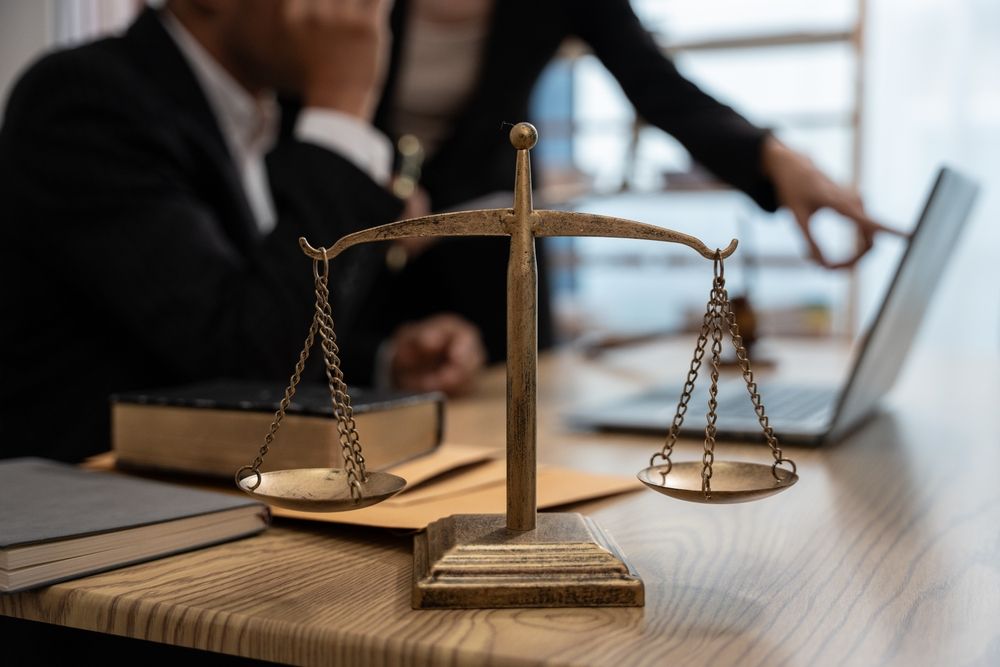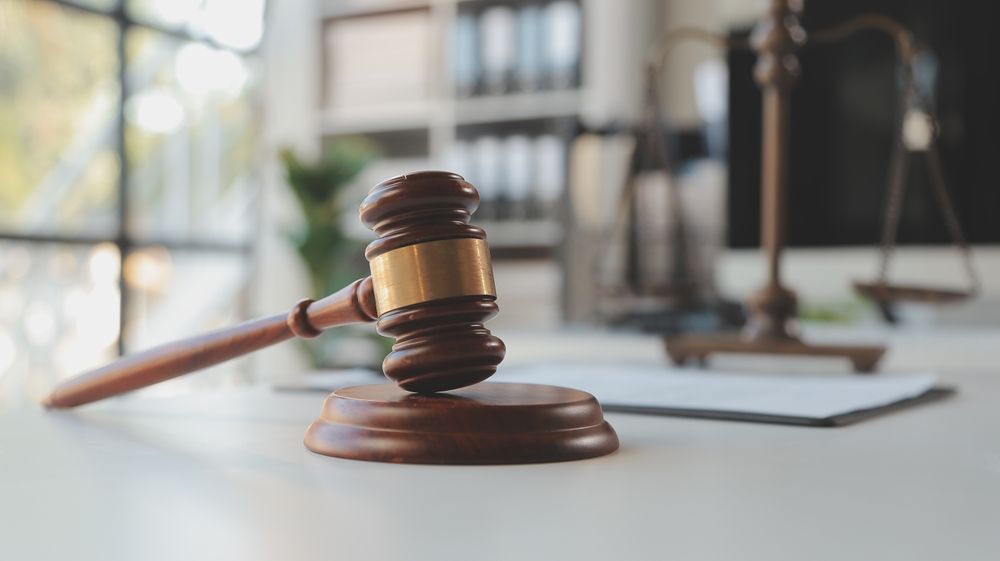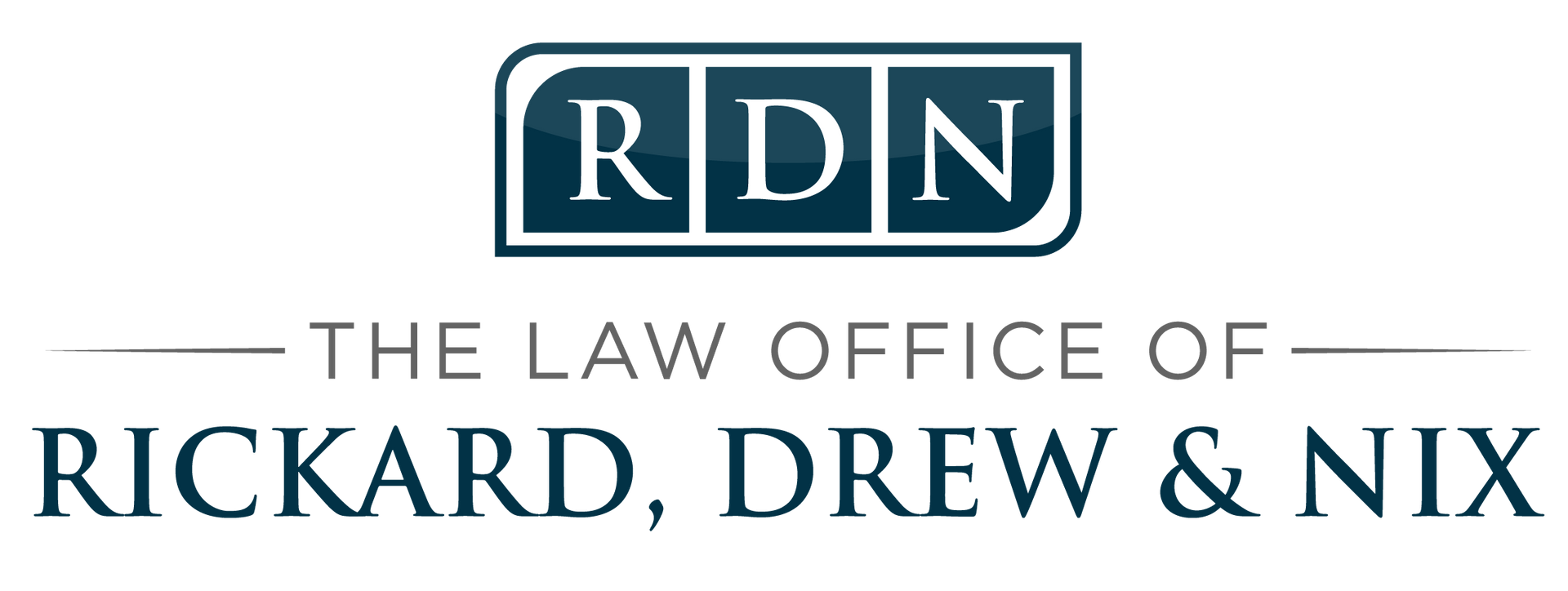Understanding Contingency Fees: How Atlanta Car Accident Lawyers Get Paid and What It Means for Your Case
Car accidents can be devastating financially. Victims get mountains of medical bills due to injuries, can't work, and have most likely lost the use of their vehicles. Add to that insurers who delay or deny claims, and you've got a debt storm waiting to happen. It's in the midst of this chaos that many victims forgo hiring a car accident attorney because they mistakenly think they'll have to fork over thousands of dollars upfront. This couldn't be further from the truth. Understanding how most car accident attorneys in Atlanta work can be a beacon of hope for victims in dire financial straits.
Many people wonder how Atlanta car accident lawyers get paid and what that means for their case. This blog post will explore the concept of contingency fees, detailing how this payment model works, what it signifies for clients, and the advantages it offers in accessing legal services. Understanding these fees can relieve concerns about legal costs and help individuals make informed decisions when seeking representation after a car accident. Readers will gain insight into their rights and how to evaluate the costs associated with hiring an attorney in these cases.
Understanding Contingency Fees in Atlanta Car Accident Cases
Contingency fees are a common payment structure in personal injury law, particularly in Atlanta car accident cases. Clients only pay legal fees if their lawyer secures compensation for them, making it a risk-free option. This method provides benefits such as financial accessibility and motivated representation while emphasizing the importance of gathering strong evidence. The following sections will further explain how these fees work and their advantages for clients.
Definition of Contingency Fees
Contingency fees refer to a payment structure in which personal injury lawyers, including those handling Atlanta car accident cases, charge their fees based on the success of the lawsuit. This means that clients do not owe any legal fees unless their attorney secures compensation for them. Such a model aligns the interests of the lawyer and the client, making sure the attorney is motivated to maximize the damages won, whether it involves a standard personal injury claim or more complicated matters such as a wrongful death claim or loss of consortium.
This fee arrangement provides significant advantages for clients facing the financial aftermath of a car accident. Many individuals may hesitate to seek legal assistance due to concerns about upfront costs, but contingency fees eliminate this barrier. Clients can pursue their rightful compensation without the stress of immediate financial liability, allowing them to focus on their recovery and the details of their case, while their attorney works diligently to secure the best possible outcome.
How Contingency Fees Work in Personal Injury Cases
Contingency fees in personal injury cases, particularly for Atlanta car accidents, work by allowing clients to engage a personal injury lawyer without upfront costs. Instead of needing to pay hourly or retainers, the lawyer's fee is contingent upon securing a settlement or verdict. This arrangement empowers clients who might be facing challenges due to financial strain from medical bills or missed work resulting from their injuries, including pain and suffering caused by negligence in an accident.
In practice, if a pedestrian is involved in an accident and hires a personal injury lawyer under a contingency fee agreement, the attorney only receives payment if they achieve a favorable settlement for the client. The lawyer’s interests align with those of the client, as the attorney is motivated to gather robust evidence and build a strong case for compensation. This model not only provides access to legal representation but also helps clients focus on recovery while their attorney works to secure the justice they deserve.
Benefits of Hiring a Lawyer on a Contingency Basis
Hiring a lawyer on a contingency basis can significantly benefit clients involved in car accident cases, particularly in difficult situations involving comparative negligence or driving under the influence. This payment structure allows individuals to seek legal representation without the burden of upfront costs, giving them access to skilled advocacy as they encounter the legal process. For instance, if a client is dealing with pain from their injuries and is unsure how to proceed, having a lawyer who only gets paid if they win can alleviate financial stress and empower them to focus on recovery.
Furthermore, in cases involving serious incidents, such as dog bites or other accidents leading to substantial medical therapy, contingency fees provide a safety net for those facing financial hardship. Clients can prioritize their healing without worrying about how to afford a lawyer's services, knowing that their attorney is motivated to build a strong case and achieve compensation. This partnership can lead to a more effective legal strategy, as the lawyer is focused on gathering evidence and overcoming legal challenges to secure the best outcome possible for the client.
Do Atlanta Car Accident Lawyers Operate on a Contingency Fee Model?
Many Atlanta car accident lawyers typically operate under a contingency fee model, which contrasts with hourly or flat fee arrangements. This payment structure means clients only pay if their lawyer secures compensation. Factors such as the details of the case, the need for expert witnesses, and potential trial involvement can influence a lawyer's contingency rates. Understanding these elements helps clients understand their legal options effectively.
In the following sections, the discussion will further clarify standard practices among Atlanta car accident attorneys, as well as the key differences in fee structures. It will also highlight what clients should consider regarding the factors that affect contingency rates, providing a comprehensive view of the legal process following an accident.
Common Practices Among Atlanta Car Accident Lawyers
Common practices among Atlanta car accident lawyers often involve a thorough understanding of legal procedures, including negotiation strategies and statutes of limitations. These attorneys typically recognize the importance of establishing causation to build a compelling case for their clients. By gathering strong evidence and effectively communicating with insurance companies, they aim to maximize the compensation recovery for medical expenses and property damage incurred due to traffic accidents.
In many instances, Atlanta car accident lawyers conduct detailed assessments of each case to determine the best course of action. They focus on the unique circumstances of each accident, helping clients overcome potential challenges. This expertise makes clients aware of critical deadlines and procedures while also enabling their legal representation to negotiate efficiently, alleviating some of the stress associated with personal injury claims.
Comparison With Hourly or Flat Fees
Contingency fees differ significantly from hourly or flat fee structures that some lawyers may offer. With hourly fees, clients pay for the time attorneys spend on their case, which can quickly add up, especially if the case involves issues like punitive damages or distracted driving. In contrast, contingency fees allow clients to avoid upfront costs and only pay a percentage of the final compensation secured, making it a more accessible option when facing financial strain due to medical bills or lost wages.
Furthermore, for clients dealing with property damage or serious injuries, contingency agreements mean that they receive dedicated legal support without the immediate burden of fees. The attorney's motivation to succeed aligns with the client's best interests, as they only receive payment if the case results in a favorable outcome. This model not only provides peace of mind but also encourages the lawyer to diligently pursue compensation for all damages, including those for pain and suffering incurred from the accident.
Factors Influencing Lawyer's Contingency Rates
Several factors play a role in determining a lawyer's contingency rates in Atlanta car accident cases. The circumstances of the case significantly impact the rate; for instance, cases requiring extensive review of medical records or the involvement of expert witnesses may lead to higher percentages. Additionally, the anticipated income from a potential jury verdict can influence these rates, as lawyers will consider the likelihood of a favorable outcome when setting their fees.
Another key factor is the level of stress associated with the case. Lawyers understand that clients often face significant emotional and financial burdens after an accident. Therefore, attorneys may adjust their contingency percentages based on the difficulty of managing legal proceedings, such as proving liability or addressing disputes with insurance companies. This provides clients with dedicated support, allowing them to focus on their recovery without the added weight of financial concerns.
What Does a Contingency Fee Structure Mean for Your Case?
A contingency fee structure has significant financial implications for clients involved in motor vehicle accidents, as it allows them to pursue legal action without upfront costs. Understanding the inherent risks and rewards helps clients recognize how their case may be managed strategically. This model influences legal strategy and emphasizes the need for robust case management, especially in cases involving serious injuries such as brain trauma or wrongful death, where suffering and financial burdens are substantial.
Financial Implications for Clients
The financial implications of a contingency fee structure are significant for clients involved in car accident cases. When an attorney works on a contingency basis, clients do not have to pay upfront legal costs, which allows them to focus on their recovery without the stress of immediate financial burden. In cases involving severe injuries, such as spinal cord damage, the duty of care becomes paramount, and having access to skilled legal representation can make a vital difference in securing appropriate compensation.
Furthermore, the evaluation of a client's case by an experienced car accident attorney can lead to a thorough understanding of potential damages, including medical expenses and lost wages. Should the case proceed to depositions or expert testimony, clients are assured that their attorney is motivated to prepare diligently and advocate effectively on their behalf, as their payment depends on achieving a favorable settlement or verdict. This alignment of interests creates a strong partnership, enhancing the likelihood of a successful outcome for clients seeking justice after an accident.
Understanding Risk and Reward
Understanding the risk and reward of a contingency fee structure is crucial for clients involved in car accidents. When a plaintiff works with an attorney under this arrangement, they take on the risk of not having to pay upfront fees, which can be a significant burden after an incident involving a defendant, such as in drunk driving cases. The attorney's ability to decipher personal injury law, including knowledge of relevant statutes and the enforcement of speed limits, plays a vital role in determining the potential outcomes and rewards of the case.
This model encourages clients to pursue their claims with confidence, as their lawyer is committed to obtaining the best possible settlement or verdict, motivated by the same financial interests. For instance, if the case involves proving that a defendant exceeded the speed limit, the lawyer's knowledge and expertise become essential in building a compelling argument. This alignment builds trust, allowing clients to focus on their healing while their attorney works diligently to advocate for their rights in the legal process.
Impacts on Legal Strategy and Case Management
The structure of contingency fees significantly influences the legal strategy and case management of personal injury cases, particularly for plaintiffs involved in car accidents. Attorneys prioritize gathering compelling evidence and building a strong case since their payment depends on the outcome. This focus helps clients receive comprehensive legal advice tailored to their unique circumstances, enhancing the attorney's reputation for successfully advocating for their clients' rights and interests.
Moreover, contingency fee arrangements allow attorneys to dedicate their full attention to each case without the pressure of upfront fees. This enables them to carefully assess the specifics of the case, communicate effectively with witnesses, and negotiate assertively with insurance companies. As a result, clients benefit from a legal process that is not only efficient but also designed to maximize potential compensation, making the lawyer's expertise invaluable during every step of their recovery journey.
Evaluating the Cost of a Contingency Fee in Car Accident Cases
Contingency fees in auto accident and motorcycle accident cases typically range between 25% to 40% of the final settlement or verdict. Clients should also be aware of potential additional expenses related to their injury case, such as court fees and expert witness costs. Clarifying payment terms in the agreement helps clients understand their financial obligations, promoting transparency as they manage the aftermath of accidents and personal injury cases.
Typical Percentage Ranges for Contingency Fees
In Atlanta car accident cases, the typical percentage range for contingency fees is generally between 25% to 40% of the final settlement or verdict. This means that if accident victims receive compensation for their accident claim, their attorney will take a pre-agreed percentage of that amount as payment. For instance, if a case settles for $100,000, and the attorney’s fee is set at 33%, the lawyer would receive $33,000, leaving the client with $67,000 to cover medical expenses and lost wages.
Understanding these typical percentage ranges is crucial for individuals working within personal injury law. It helps accident victims set realistic expectations about their potential net recovery after fees are deducted. When engaging a lawyer for a car accident case, clients should engage in open discussions about the fee structure to avoid surprises later. Clear communication about potential costs helps clients focus on their recovery without undue financial stress while trusting their attorney to advocate effectively for their rights.
Potential Additional Expenses to Expect
When processing a Georgia car accident claim, car accident victims should be aware of potential additional expenses beyond the contingency fee charged by an attorney. These may include costs associated with obtaining medical records, court filing fees, and fees for expert witnesses essential for building a strong case. Such expenses can arise during the process of pursuing a car accident settlement, and it is vital for clients to understand these financial obligations to avoid surprises.
Understanding these potential costs can help car accident victims prepare for their cases effectively. During a motor vehicle accident claim, necessary expenses may also encompass costs associated with accident reconstruction specialists or medical evaluations. Clients should engage openly with their Atlanta car accident lawyer about these potential additional fees for transparency and to develop a comprehensive strategy for their legal proceedings.
Clarifying Payment Terms in Your Agreement
When entering into an agreement with Atlanta personal injury lawyers, it is essential for clients to clarify the payment terms associated with contingency fees. This step helps clients understand not only the percentage the lawyer will take from the final settlement but also any possible additional expenses that may arise throughout the process. Clear communication about these terms helps clients feel more secure regarding their financial obligations, especially in car accident injury cases where unexpected costs may emerge.
For example, in cases involving a drunk driving accident, attorneys may need to invest more resources in gathering evidence or hiring expert witnesses. Clients should discuss these factors upfront so they fully comprehend how these expenses might impact their net recovery. By establishing transparency regarding payment terms in the agreement, clients can focus on their recovery without lingering worries about potential financial surprises related to their Atlanta car accidents.
The Role of Contingency Fees in Accessing Legal Services
Contingency fees play a crucial role in making legal help accessible for victims involved in car accidents. This payment structure directly impacts how injured individuals pursue their personal injury cases, enabling them to seek representation without upfront financial strain. Additionally, addressing common misconceptions surrounding contingency fee arrangements is vital for clients considering Atlanta auto accident claims. The following sections will provide insights into how these fees enhance accessibility to injury lawyers and support clients in managing their cases effectively.
How Contingency Fees Make Legal Help Accessible
Contingency fees significantly enhance access to legal services for individuals pursuing car accident claims. In situations like a Marietta car accident, many potential clients may hesitate to seek representation due to concerns about upfront costs. By utilizing this payment structure, lawyers can provide necessary assistance without imposing a financial burden, allowing clients to focus on recovery while their attorney handles the burden of proof and builds a compelling case.
This payment model also democratizes access to skilled legal representation in injury law, as clients are not required to pay until after securing compensation. For those dealing with the aftermath of accidents, the ability to hire a lawyer under a contingency fee arrangement means they can engage professional support and manage the legal process without worrying about immediate financial obligations. Such access ultimately empowers more individuals to advocate for their rights effectively.
The Impact on Case Pursuit for Injured Victims
The impact of contingency fees on case pursuit for injured victims is significant, especially in the context of hit and run incidents or drowsy driving cases. Clients can pursue their claims without the burden of upfront legal fees, allowing them to focus on recovery rather than worrying about financial obligations. This structure empowers individuals to seek legal representation, which is crucial in these types of cases, such as gathering evidence or dealing with the Georgia Department of Transportation regarding traffic violations.
Additionally, contingency fees facilitate access to justice for victims of product liability, assuring that injured parties can assert their rights without immediate financial strain. Attorneys working on a contingency basis are motivated to secure the maximum financial compensation for their clients, which encourages diligent case management and advocacy. This alignment of interests ultimately benefits clients, helping them to pursue their cases more confidently, knowing that they have skilled legal support focused on achieving a favorable outcome.
Misconceptions Surrounding Contingency Fee Arrangements
One common misconception about contingency fee arrangements is that clients may believe they are signing contracts that bind them to high costs regardless of their case outcome. In reality, a contingency fee structure guarantees that legal fees are only applicable if the attorney successfully secures compensation for the client, meaning their financial commitment is directly tied to the success of the case. Effective communication between the lawyer and client is essential, clarifying that if a case involves contributory negligence or soft tissue injuries, the attorney's due diligence can help manage legal matters without imposing upfront financial strain.
Another misunderstanding is the assumption that contingency fees signal a lack of quality in legal representation. Clients may worry that lower upfront costs mean lower attorney dedication or expertise. However, regarding highway accidents and other serious cases, Atlanta car accident lawyers operating on a contingency basis are often highly motivated since their payment depends on achieving favorable results. This alignment of interests is a proactive approach, encouraging lawyers to apply their skills thoroughly and effectively in securing justice for their clients' injuries.
Consultation and Understanding Your Rights
After a car accident, taking specific steps can greatly impact the outcome of a case. Individuals should know what questions to ask their Atlanta car accident lawyer during the initial consultation, such as those regarding their policy and potential compensation for expenses like physical therapy. Clarity in fee agreements and expectations will alleviate distress in the aftermath of an accident, especially in the metro Atlanta area.
Addressing these topics not only empowers clients but also establishes a strong foundation for effective legal representation. Understanding these elements enhances their ability to advocate for their rights and manage their situation with confidence.
Steps to Take After a Car Accident
After a car accident, it is essential for individuals to seek medical attention, regardless of how minor the injuries may seem. In cases involving reckless driving, like that of a truck driver, even subtle symptoms can indicate more significant health issues. Prompt medical evaluation not only preserves personal safety but also provides necessary documentation crucial for a potential personal injury claim.
Additionally, gathering detailed information at the accident scene is vital for strengthening one's case. Passengers and drivers should collect witness statements, photographs of the accident scene, and contact details of those involved. This information can be instrumental in demonstrating how a reasonable person would perceive the driver's actions, which is especially important when professional negligence or employment-related factors come into play in determining liability.
Questions to Ask During Your Initial Legal Consultation
During the initial legal consultation, clients should ask their attorney about the potential financial risks associated with their case, especially concerning how contingency fees work. Understanding what percentage of the settlement will be allocated for legal fees helps clients grasp how their compensation might be affected, particularly if they are pursuing claims that involve nursing care or disfigurement. Asking these questions gives clients a clear picture of their financial obligations and helps them prepare for the legal process ahead.
Another critical question to address is how the attorney plans to strategize the case to enhance the client's quality of life post-accident. Clients should inquire about the methods in place for gathering evidence, negotiating with insurance companies, and advocating for medical expenses related to their injuries. Engaging in this dialogue not only clarifies the attorney's approach but also empowers clients to make informed decisions about their legal representation and supports their journey toward recovery and compensation.
Clarity in Fee Agreements and Expectations
When engaging with an attorney in Atlanta for a car accident case, clients must have clarity in fee agreements and understand their financial obligations. This includes discussions about contingency fees, which are contingent upon securing compensation, as well as any potential court costs that may arise during the process. By addressing these elements upfront, clients can better advocate for their needs and avoid unexpected expenses down the line.
It is equally important for clients to inquire about the specifics of how their case will be managed, especially concerning the duty of the attorney to gather necessary evidence, including medical documentation for tissue injuries or issues related to consortium claims. This dialogue not only establishes transparency but also creates a solid foundation for the attorney-client relationship, empowering clients to move forward with confidence in their legal journey.

Attorney Jessica Nix, Managing Partner
Jessica Nix is Managing Partner and a Personal Injury Attorney at the Law Office of Rickard, Drew & Nix in Atlanta, with more than 10 years of experience representing injury victims in courts across Metro Atlanta. She graduated cum laude from the University of Georgia School of Law, where she served as an editor of the Journal of Intellectual Property Law. Jessica is admitted to the State Bar of Georgia, is a member of the Georgia Trial Lawyers Association, and was named a Georgia Super Lawyers Rising Star for Personal Injury from 2017 to 2019. To speak with the Law Office of Rickard, Drew & Nix, schedule a free consultation today.



